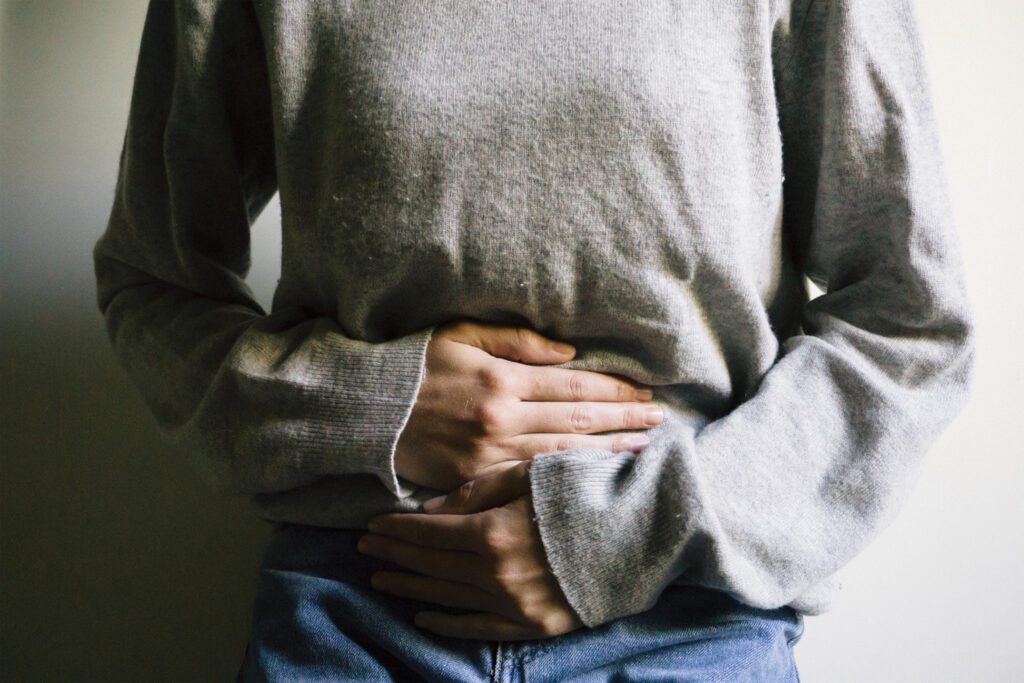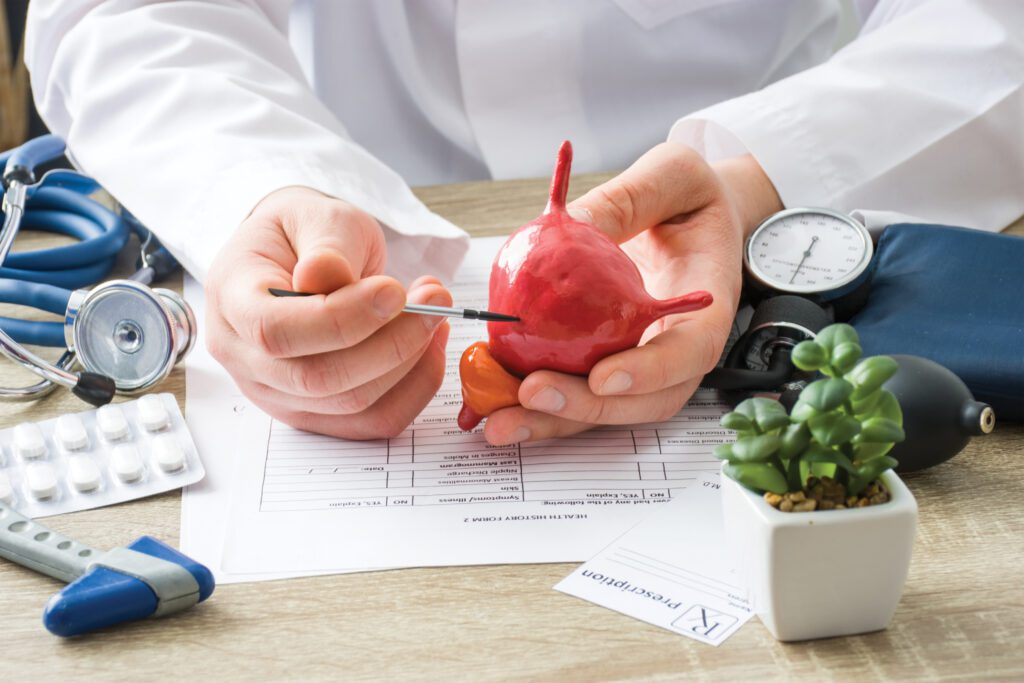A Migraine of the Bladder
Interstitial cystitis (IC), a condition that results in recurring discomfort or pain in the bladder and surrounding pelvic region, has been called “a migraine of the bladder.”
The cause is uncertain, the symptoms involve severe pain, and the treatment options involve behavioral changes along with medications.
For the estimated 1 million sufferers in the United States, correctly diagnosing IC can be a long and frustrating process. IC symptoms are so similar to other bladder disorders – particularly urinary tract infections, bladder cancer and endometriosis – that the diagnosis is complicated. Doctors must first rule out other similar conditions before a diagnosis can be made.


“IC is a hard thing to diagnose – it is a constellation of pain that develops over time,” says Dr. Patricia McLelland, an obstetrician/gynecologist with Galen Medical Group in Chattanooga. McLelland says women often see an average of three to four doctors before a correct diagnosis is made.
IC Symptoms
Interstitial cystitis is chronic inflammation of the bladder. Even though 90 percent of IC sufferers are women, it can also affect men and children. An IC sufferer’s bladder wall becomes inflamed and irritated, which can cause scarring or make the bladder stiff. In some cases, the walls of the bladder may bleed slightly. IC is usually marked by flare-ups and remissions.
The most typical symptom of IC is pelvic pain. In general, symptoms of IC may include:
- An urgent need to urinate, both in the daytime and during the night (yet very small amounts of urine may be passed each time).
- Pressure, pain and tenderness around the bladder, pelvis and perineum (the area between the anus and vagina or the anus and the scrotum). This pain and pressure may increase as the bladder fills and decrease as it empties in urination.
- A bladder that won’t hold as much urine as it did before.
- Pain during sexual intercourse.
- In men, discomfort or pain in the penis or scrotum.
In many women, the symptoms get worse before their menstrual period. Stress may also make symptoms worse.
What Causes IC?
Doctors don’t know what exactly causes interstitial cystitis (also known as chronic pelvic pain syndrome, painful bladder syndrome and bladder pain syndrome). However, many researchers believe a trigger, caused by one or more events, may damage the bladder. These triggers may include:
- Bladder trauma, such as surgery
- Bladder overdistention (going for long periods of time without urinating)
- Pelvic floor muscle dysfunction
- Autoimmune disorder
- Bacterial infection (cystitis)
- Inflammation of pelvic nerves
- Spinal cord trauma
- An allergic reaction component
Researchers speculate that the body’s normal repair to the cells of the lining of the bladder – which typically occurs in an individual with a healthy bladder – does not occur in patients who develop IC. Research indicates that a protein called antiproliferative factor (APF) is produced by the cells of patients with IC but not by the cells of healthy control subjects. APF reportedly inhibits the growth of bladder cells and the bladder may be unable to repair itself in the presence of APF.
It is thought that defects in the bladder allow urine contents, such as potassium, to leak into the bladder lining, which may lead to mast cell activation and the release of histamine. These events may activate nerves, cause immunogenic and allergic responses, and lead to progressive bladder injury and chronic nerve pain.
Diagnosis Difficulties
Interstitial cystitis is a diagnosis of exclusion, so doctors must rule out treatable conditions as well as the absence of other diseases, before a diagnosis can be made.
Once other conditions have been excluded, further evaluation may include cystoscopy with hydrodistention of the bladder. Some doctors may also use potassium chloride sensitivity testing.
Cystoscopy with bladder hydrodistension is performed as an outpatient surgical procedure under general or regional anesthesia. Using a cystoscope, the doctor is able to look inside the bladder for glomerulations (hemorrhages associated with the non-ulcerative form of IC) or Hunner’s ulcers (lesions associated with the less-common ulcerative form of IC).



The potassium chloride test (KCI Sensitivity Test) involves inserting a solution of potassium chloride into the bladder using a catheter. Patients are then asked to report the degree of severity of pain and urgency that they experience while the KCl solution is in the bladder. However, the accuracy of the KCI Sensitivity Test is questionable and the test can be painful.
McLelland uses a PUF (pelvic pain and urgency/frequency symptom scale) questionnaire with her patients to determine any risk for IC. However, she says this test can be misleading because the results rely heavily on women who are sexually active. McLelland is quick to point out that none of the diagnostic tests are 100 percent accurate.
Treatment Options
For people suffering from interstitial cystitis, diagnosis is just the beginning. Treating the condition is crucial to being able to live a normal life. Since IC symptoms vary from person to person, and patients respond differently to treatments, there is no single “right” treatment for everyone. Sometimes it is a matter of trial and error before the right treatment combination is found. Most people affected by IC find one or more of the following treatments to be helpful.
Medication:
IC pain can be managed with over-the-counter pain relievers such as aspirin, ibuprofen, acetaminophen, non-steroidal anti-inflammatory drugs, antacids or prescription pain medications. In some cases, IC pain is treated with anti-anxiety medications or antidepressants called tricyclic antidepressants (TCAs), which are prescribed to provide relief from the hypersensitivity of the bladder lining. Elmiron (pentosan polysulfate sodium) is the only prescription medication that is FDA approved specifically for IC.
Topical medications, which can cause fewer side effects than oral medications, are sometimes used. These topical medications can include the lidocaine patch, vaginal and rectal diazepam suppositories, and amitriptyline, which is also available in oral form. Hot and cold packs can offer relief, as well.
Diet:
Another way to manage IC symptoms is with dietary changes, especially during flare-ups. Research has linked certain foods and drinks to IC flare-ups, including coffee, tea, soda, alcohol, citrus juices, foods and drinks with artificial sweeteners, hot peppers and spicy foods, and some foods with high potassium levels.
Bladder Distention:
Under anesthesia, a doctor overfills the bladder with gas or fluid, which stretches the walls of the bladder.
Bladder Instillation:
During a bladder instillation, a catheter is used to fill the bladder with liquid medication. Treatment is given every one to two weeks for six to eight weeks.
Surgery:
Bladder surgery is sometimes necessary, but should only be considered once all other treatment options have failed. Laser surgery, however, has been successfully used to treat Hunner’s ulcers associated with Intersititial Cystitis.
Bladder Therapy:
Other treatment options include bladder retraining and physical therapy.
Managing and learning to live with IC is often achieved with a combination of diet, medication and behavioral changes. McLelland says there is a need for more awareness about IC. She also recommends that women educate themselves about the condition so they are aware if an IC flare-up takes place and can begin immediate treatment to stop symptoms from worsening.
If you are suffering from recurring pelvic pain – particularly bladder pain – and have not found relief, talk with your doctor about interstitial cystitis. The first step toward relief is a proper diagnosis.
For more information about interstitial cystitis, see the Interstitial Cystitis Association website at www.ichelp.org.



Dr. Patricia McLelland
Obstetrician/Gynecologist, Galen Medical Group

